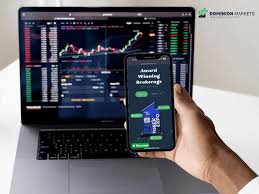
If you are looking to dive into the exciting world of Forex trading, it’s essential to start with a reliable broker. Choosing the right Forex trading broker can make a significant difference in your trading experience and success. Whether you’re a beginner or a seasoned trader, understanding the key components of what makes a great broker is crucial. For in-depth information about various brokers, including forex trading brokers Global Trading Brokers, this guide will help you navigate the vital aspects of Forex trading.
Understanding Forex Brokers
Forex brokers play a critical role in the trading ecosystem by acting as intermediaries between you and the trading market. They provide the necessary infrastructure for accessing the Forex market by offering trading platforms through which you can execute trades. Your choice of broker can affect your trading conditions, costs, and the overall success of your trading endeavors.
Key Factors to Consider When Choosing a Forex Broker
1. Regulation and Trustworthiness
The first and foremost factor to consider is the regulatory status of the broker. Regulation helps to ensure that the broker operates within the law and adheres to specific standards of conduct to protect your investments. Brokers regulated by reputable authorities such as the FCA in the UK or the ASIC in Australia provide a level of security and trust that is essential for traders.
2. Trading Costs
Cost is a significant component of your trading strategy. Every trade incurs costs, which can come in various forms, including spreads, commissions, and overnight financing fees (swap rates). It’s vital to compare different brokers to find one with competitive fees. Keep an eye on both spreads (the difference between buying and selling prices) and any additional commissions that could impact your profitability.
3. Trading Platforms
The trading platform is the primary interface you will use for executing trades, analyzing charts, and managing your account. Look for brokers that offer user-friendly and reliable platforms, with features that match your trading style. Popular platforms like MetaTrader 4 or 5 are widely favored for their robust features and extensive toolsets. Additionally, mobile compatibility can offer flexibility for trading on the go.
4. Account Types and Leverage
Many brokers offer multiple account types to accommodate various trading needs. These can range from micro accounts for beginners with minimal deposits to more advanced accounts tailored for professional traders. Leverage is another critical aspect, allowing traders to control larger positions with a smaller amount of capital. However, while leverage can amplify your gains, it can also increase your losses, so use it wisely.

5. Customer Support
Effective customer support is crucial for resolving any issues you may encounter. Look for brokers that provide prompt and helpful support through multiple channels like chat, email, or phone. A knowledgeable support team can make a significant difference, especially for new traders who may need assistance navigating the trading environment.
6. Educational Resources
An excellent broker should also provide educational resources, tools, and guides to help you improve your trading skills. Webinars, tutorials, and articles can be beneficial, especially for new traders looking to expand their knowledge and skills in currency trading.
Types of Forex Brokers
Forex brokers can be categorized into two main types based on their execution models.
A. Market Makers
Market makers are brokers that provide liquidity by creating their own market. They may offer fixed spreads but can also enact higher spreads in volatile market conditions. Traders can benefit from market makers due to their ability to fill orders quickly.
B. ECNs and STP Brokers
Electronic Communication Network (ECN) brokers and Straight Through Processing (STP) brokers connect traders directly to the interbank market. These brokers typically offer variable spreads that can be lower than those of market makers, but they charge commissions on trades. The level of transparency and speed in trade execution generally makes them favorable for professional and high-frequency traders.
Conclusion: Empowering Your Trading Journey
Choosing the right Forex trading broker is a crucial step that can significantly impact your trading experience. By carefully assessing regulation, trading costs, platforms, and support, you can find a broker that aligns with your individual trading needs. Remember, it’s essential to conduct thorough research and, if possible, test the broker’s services through demo accounts before fully committing your capital. By empowering yourself with knowledge and choosing wisely, you can enhance your chances of success in the Forex market.
As you embark on your Forex trading journey, consider exploring reliable sources of information and platforms that offer comprehensive reviews of brokers. Making informed decisions will not only help you navigate the complex world of trading but also position you for long-term success.



